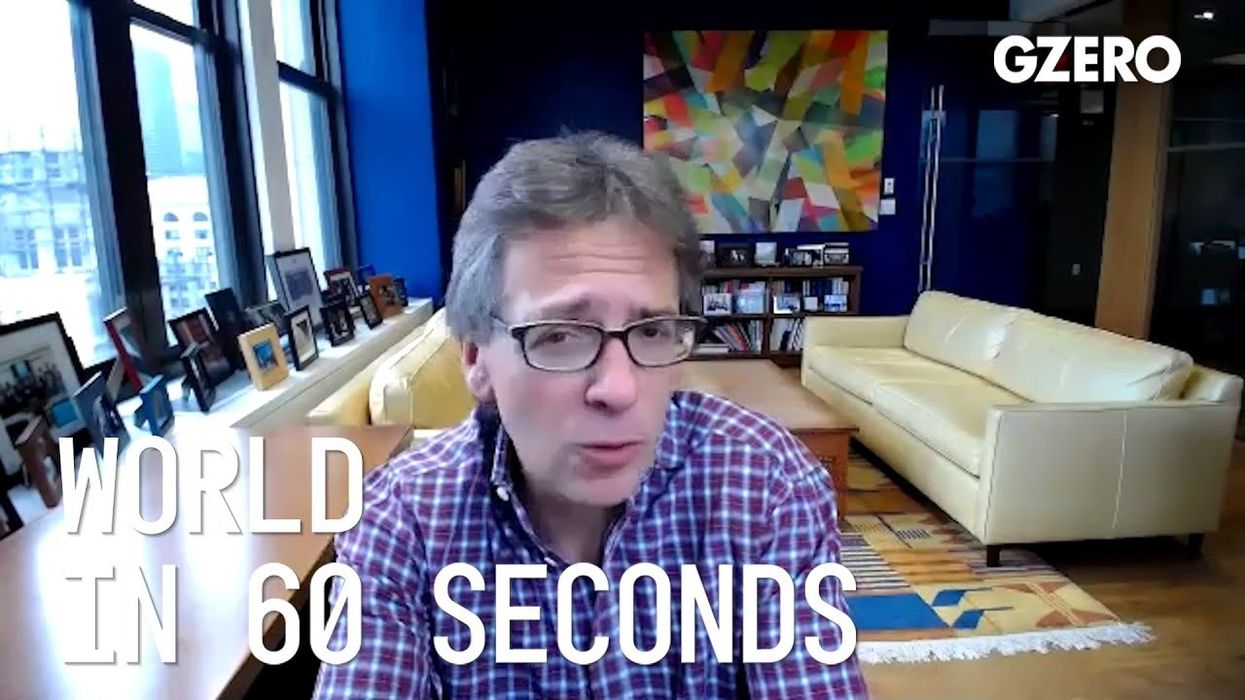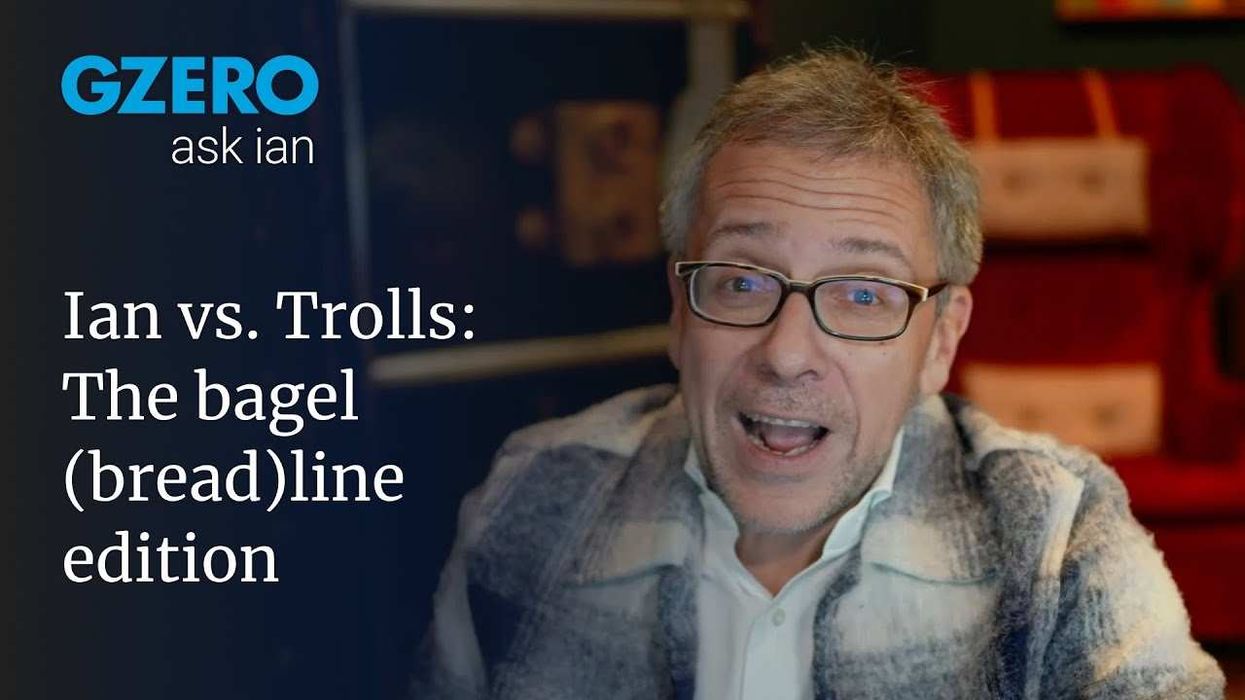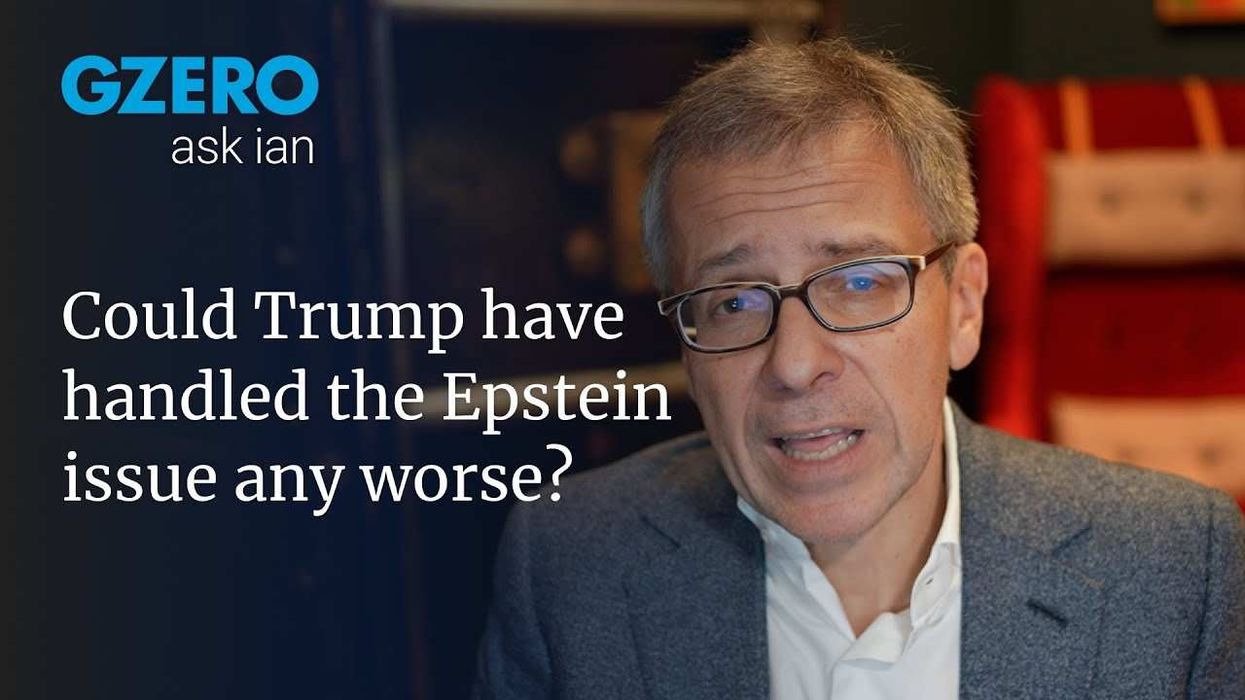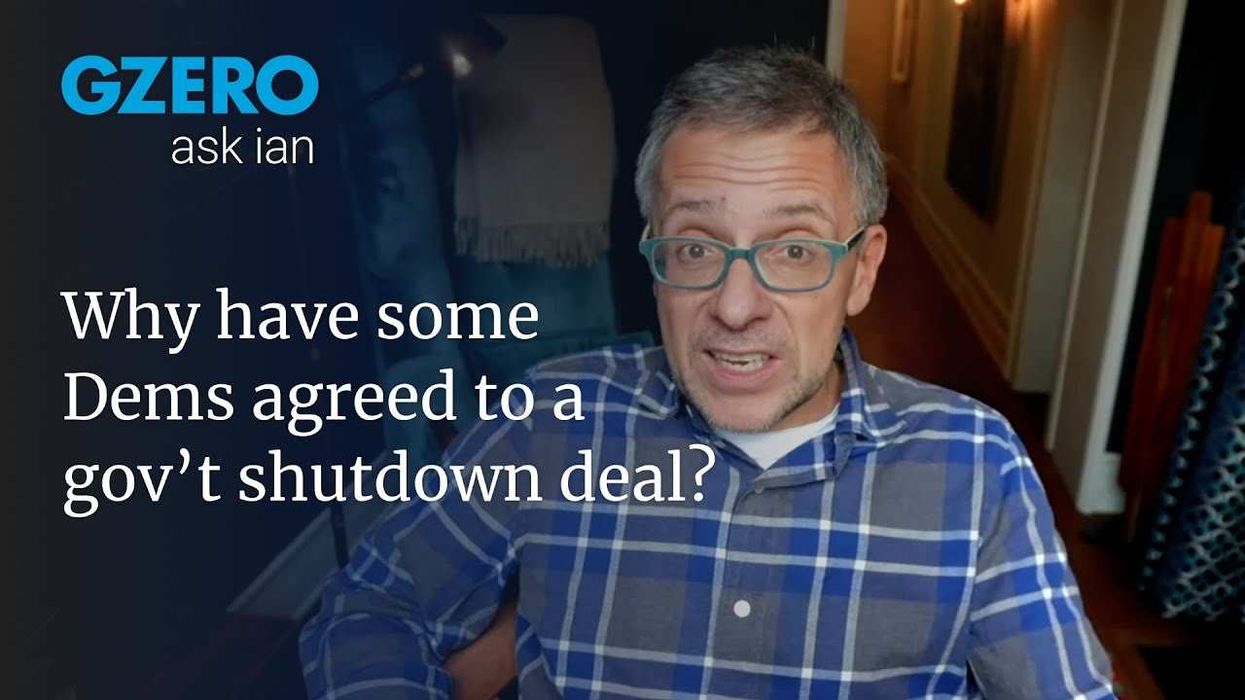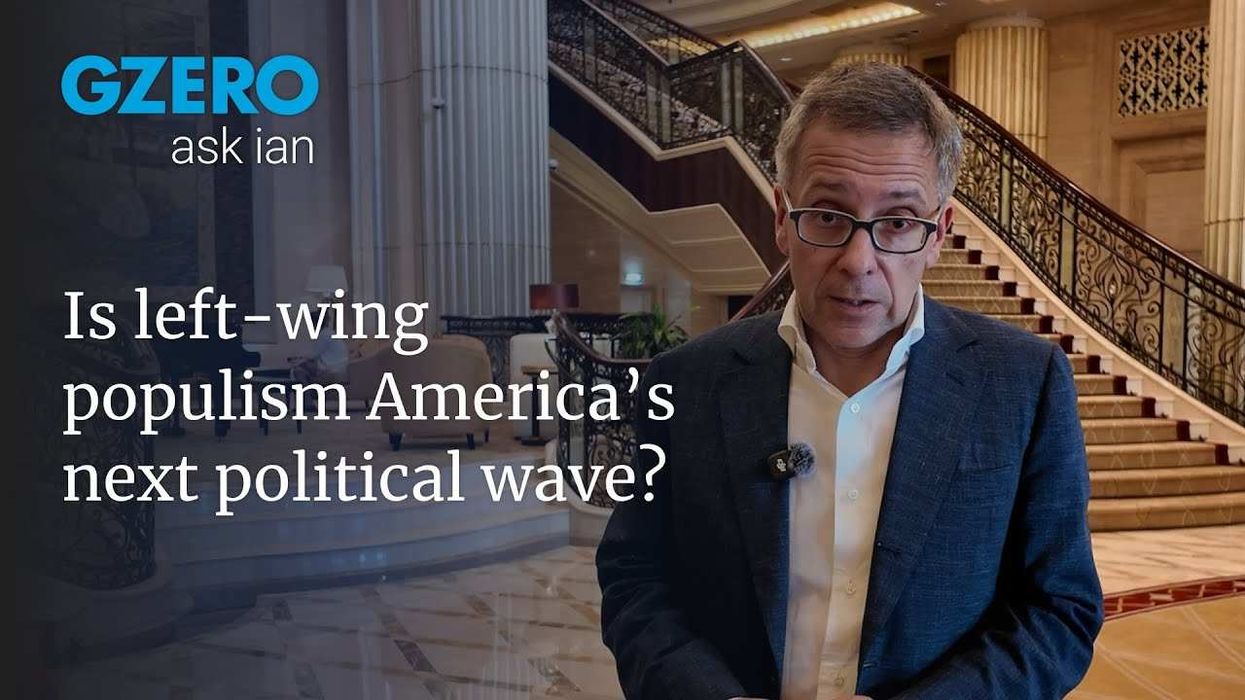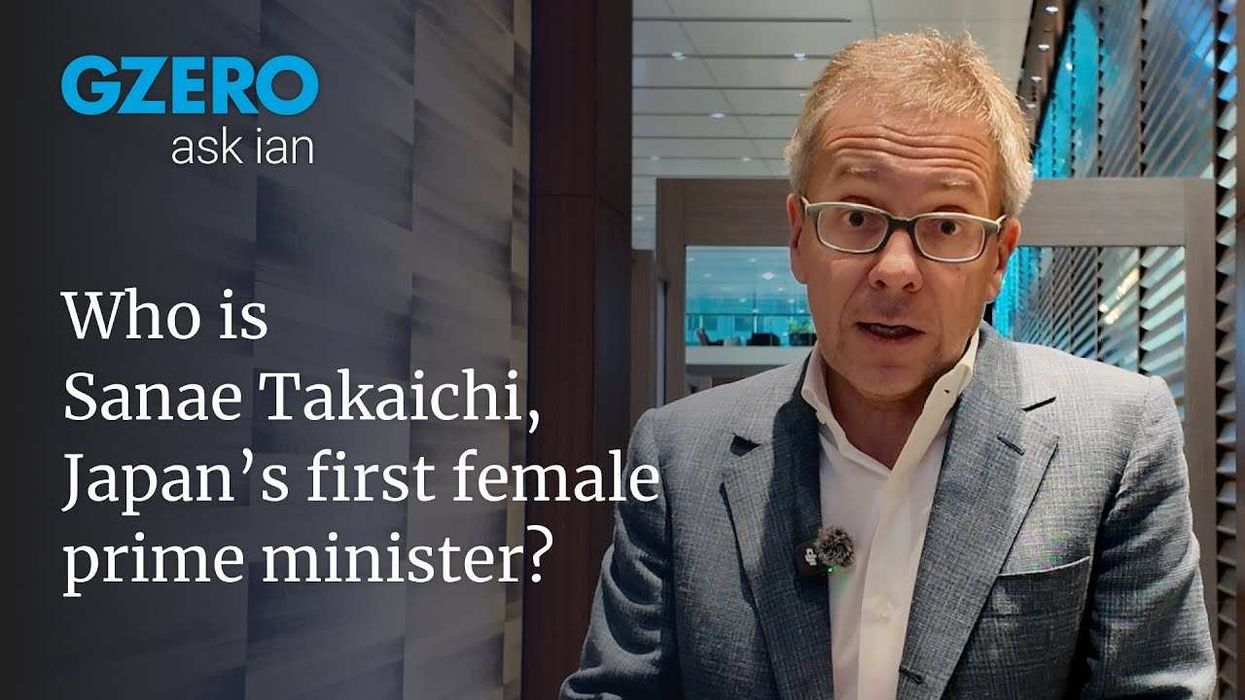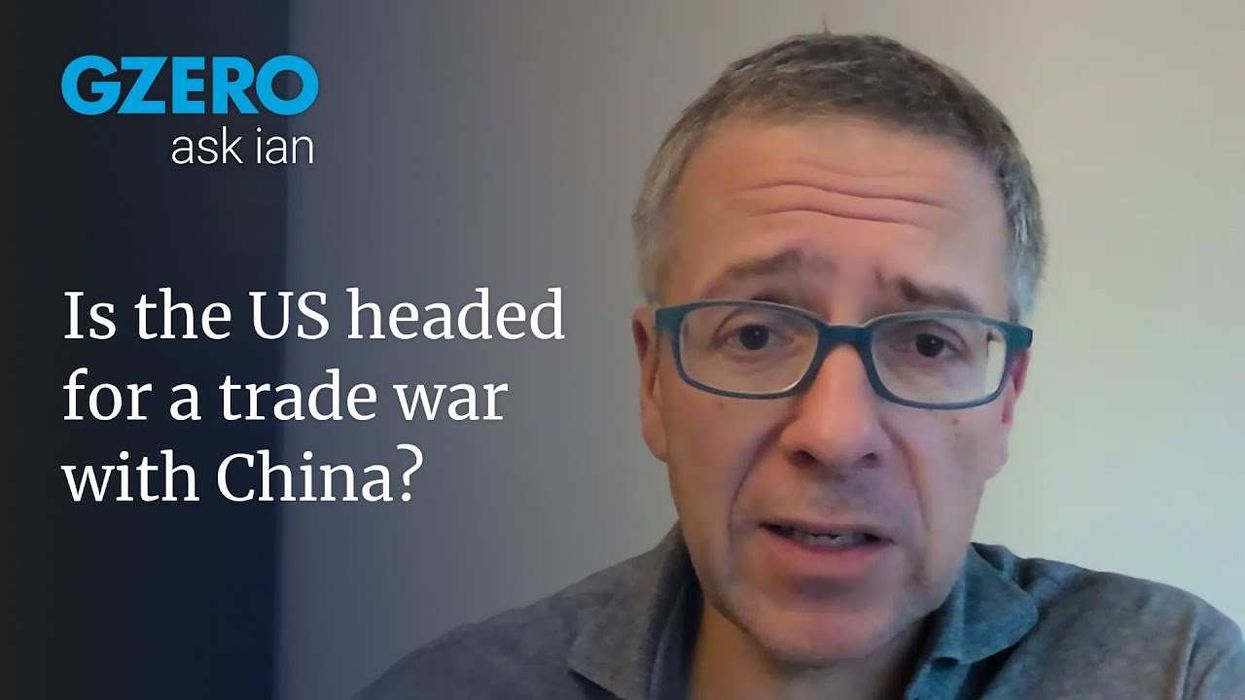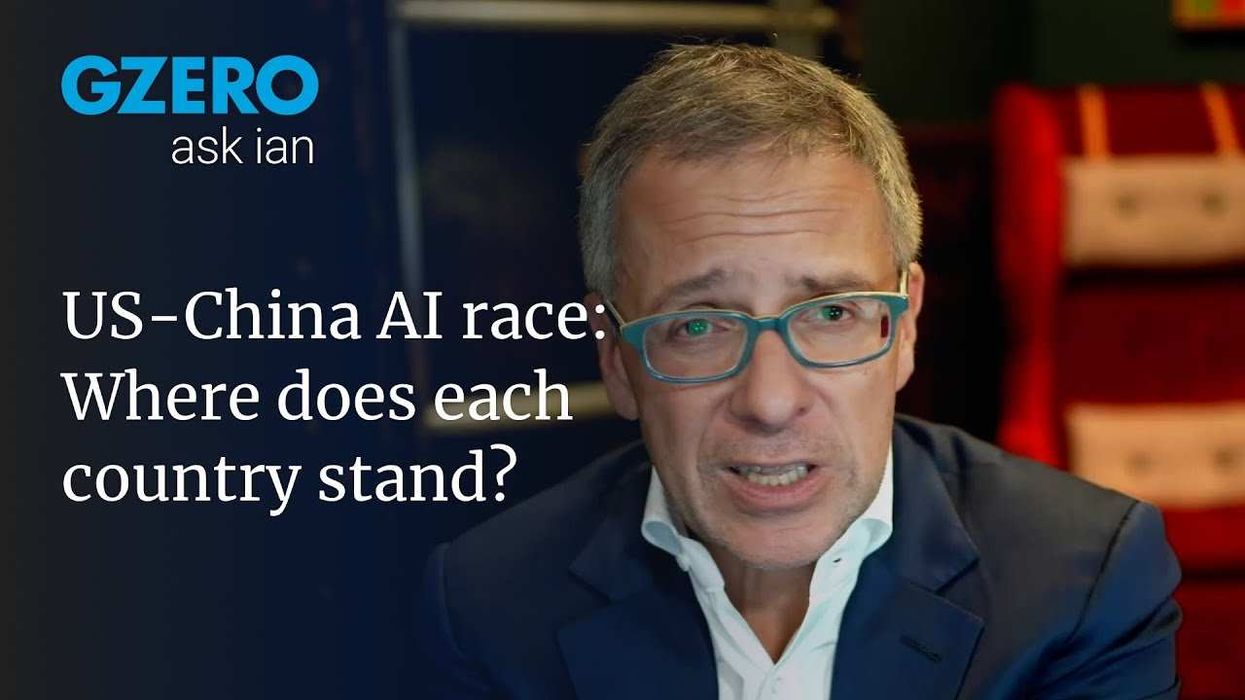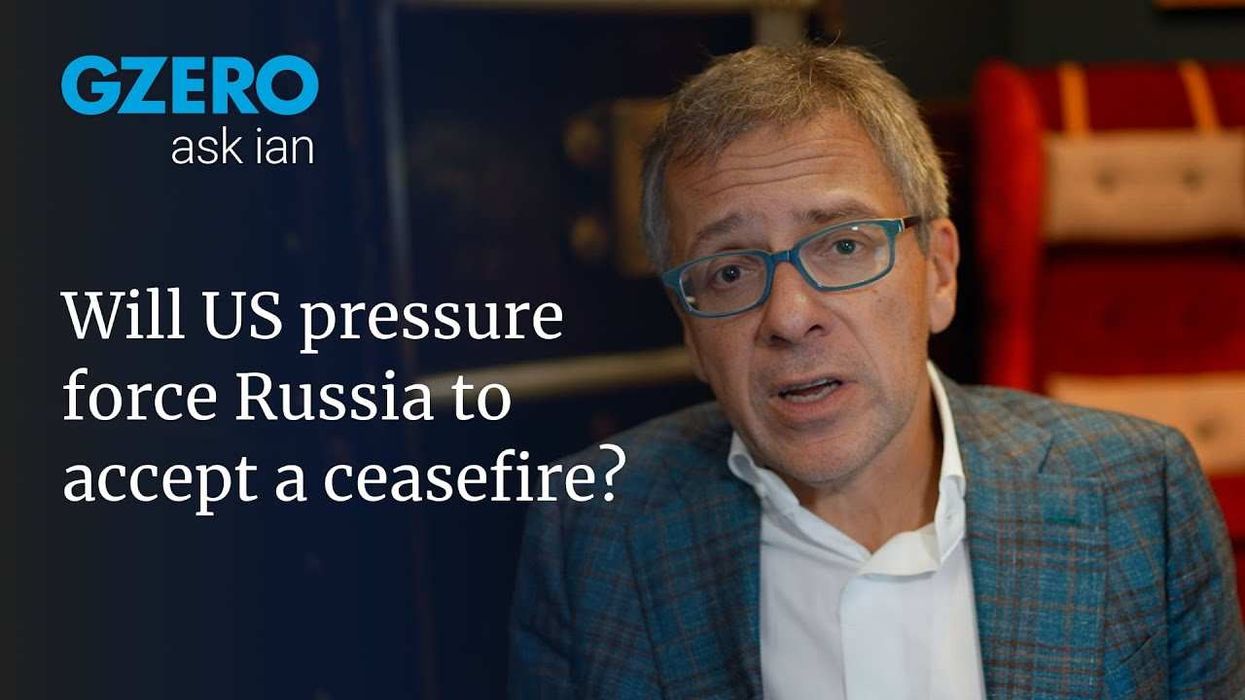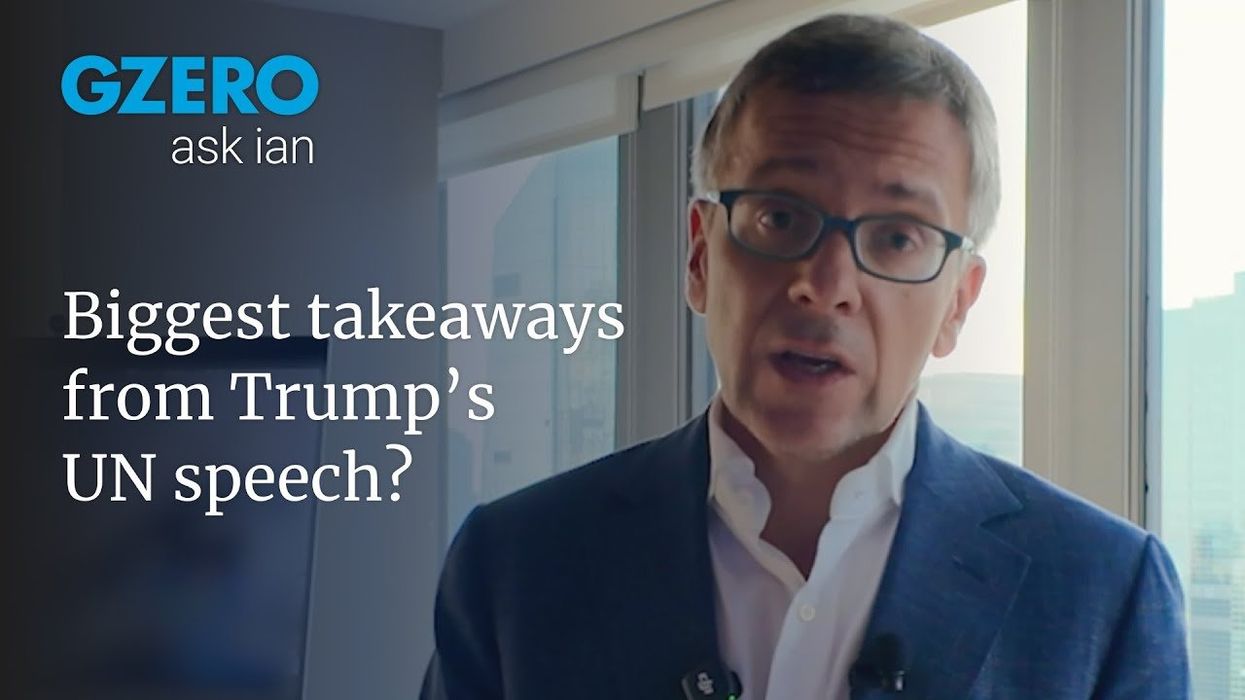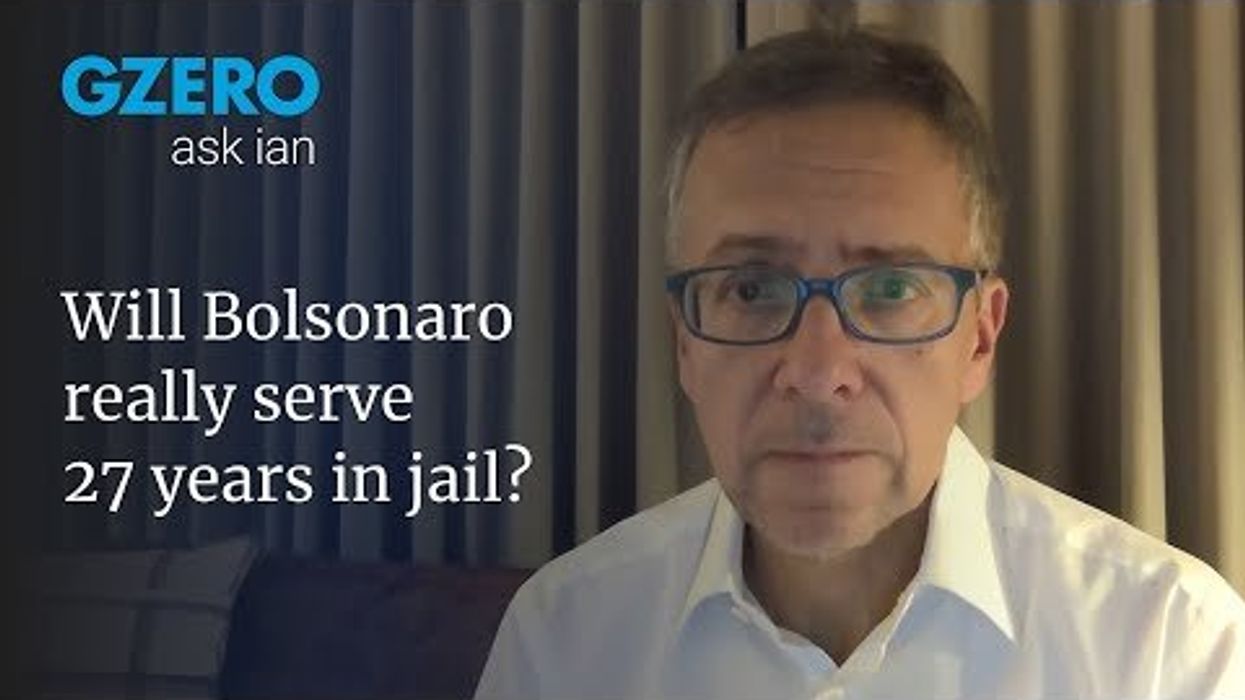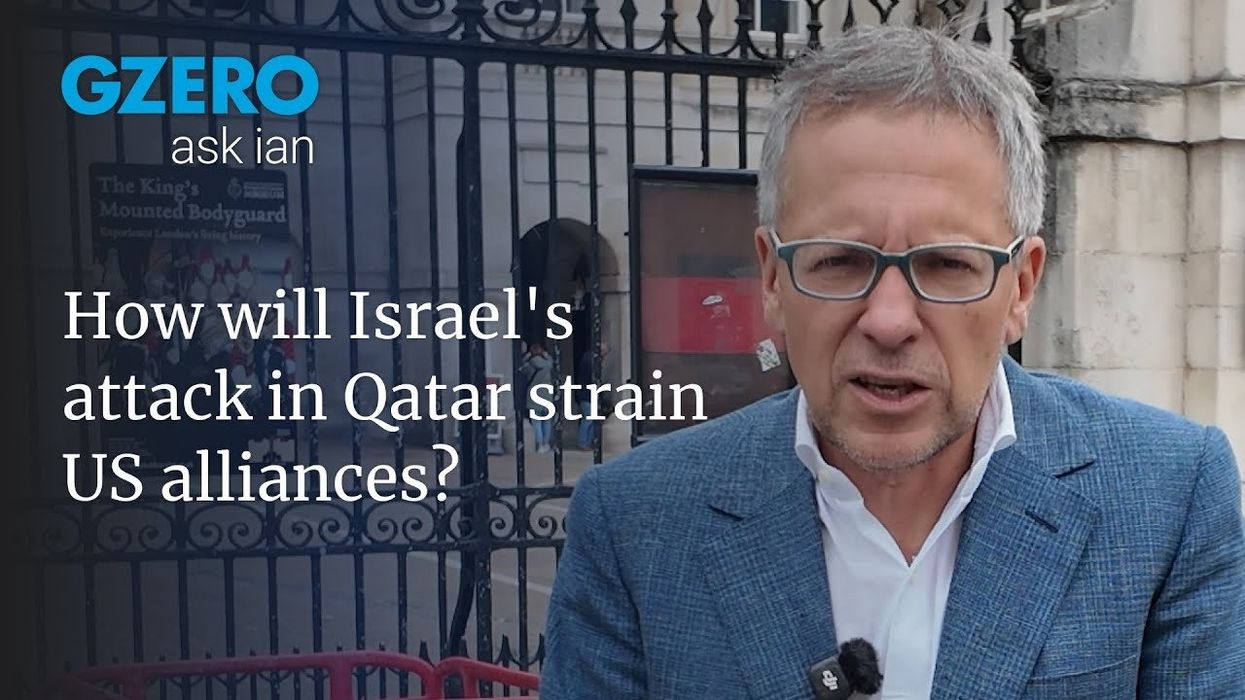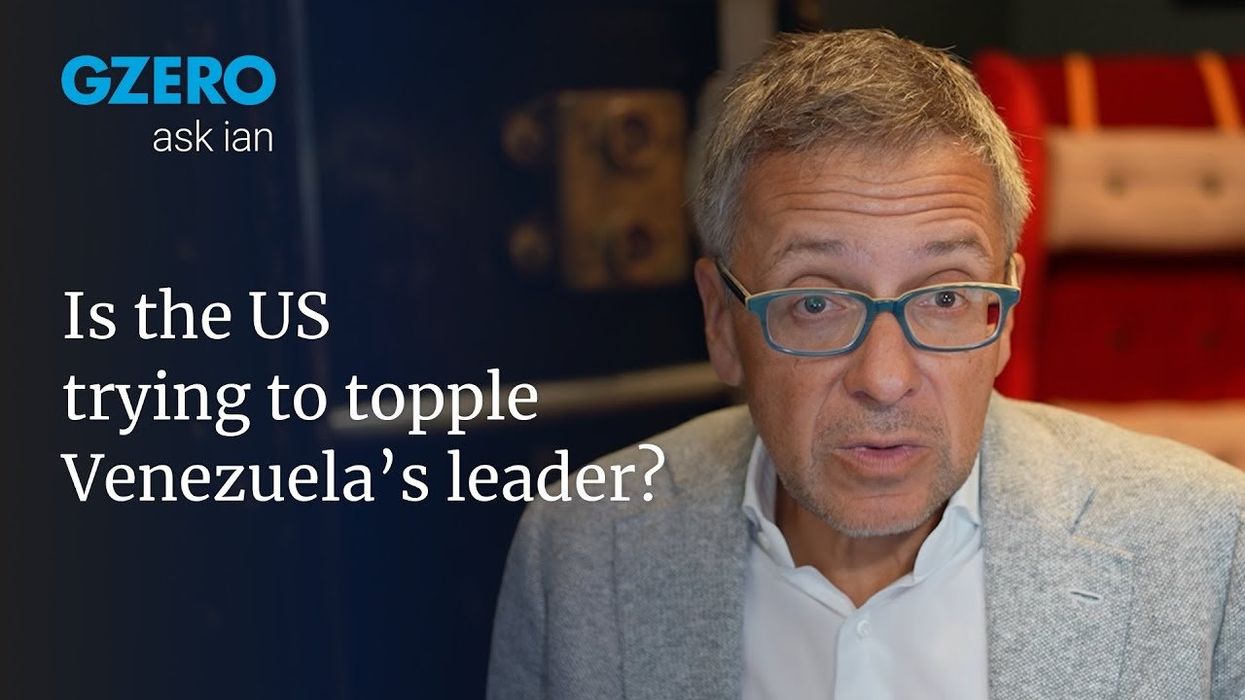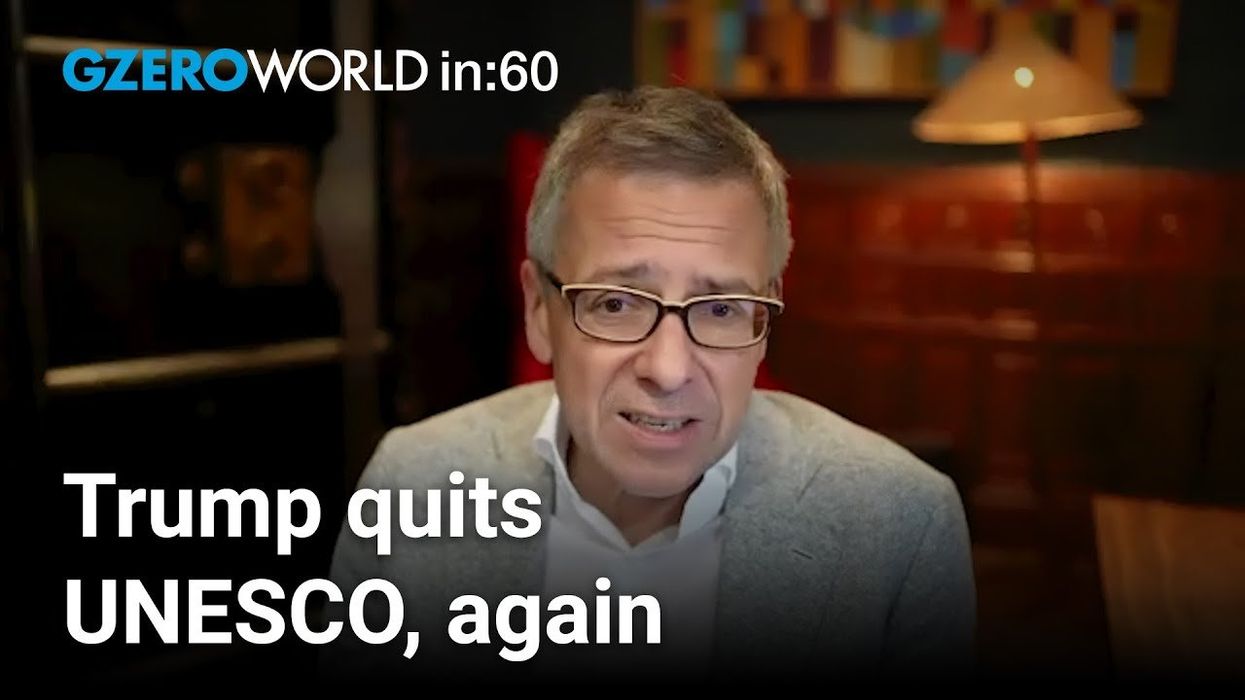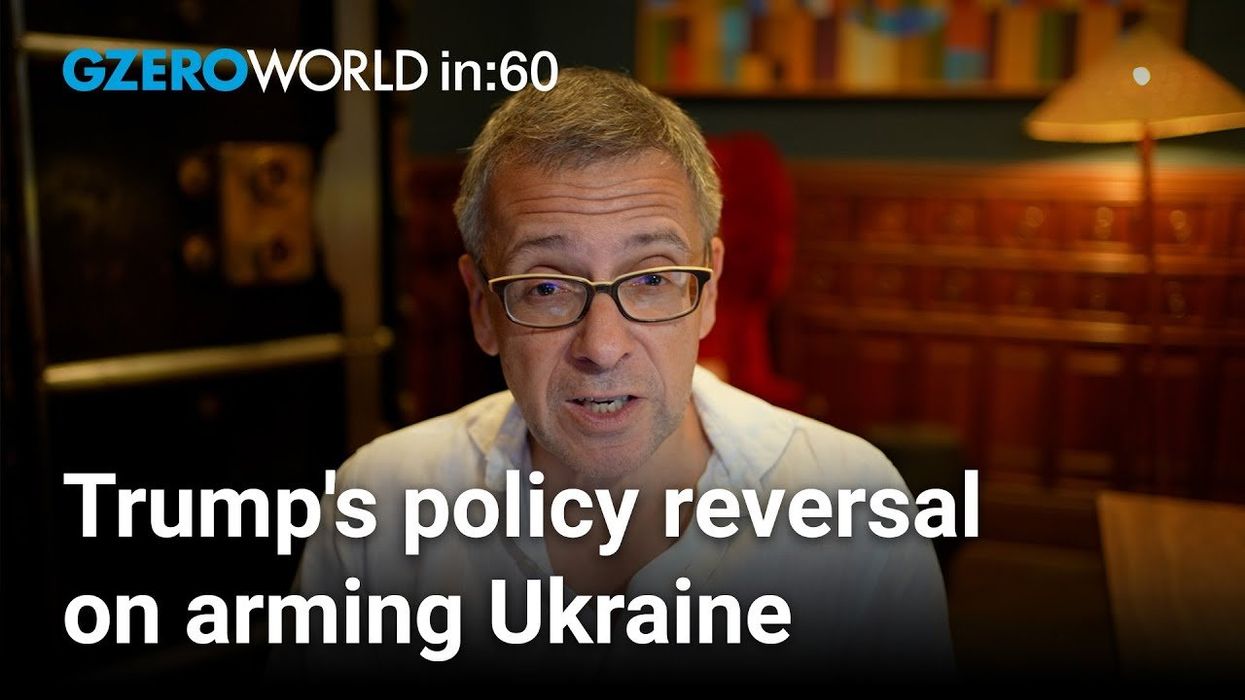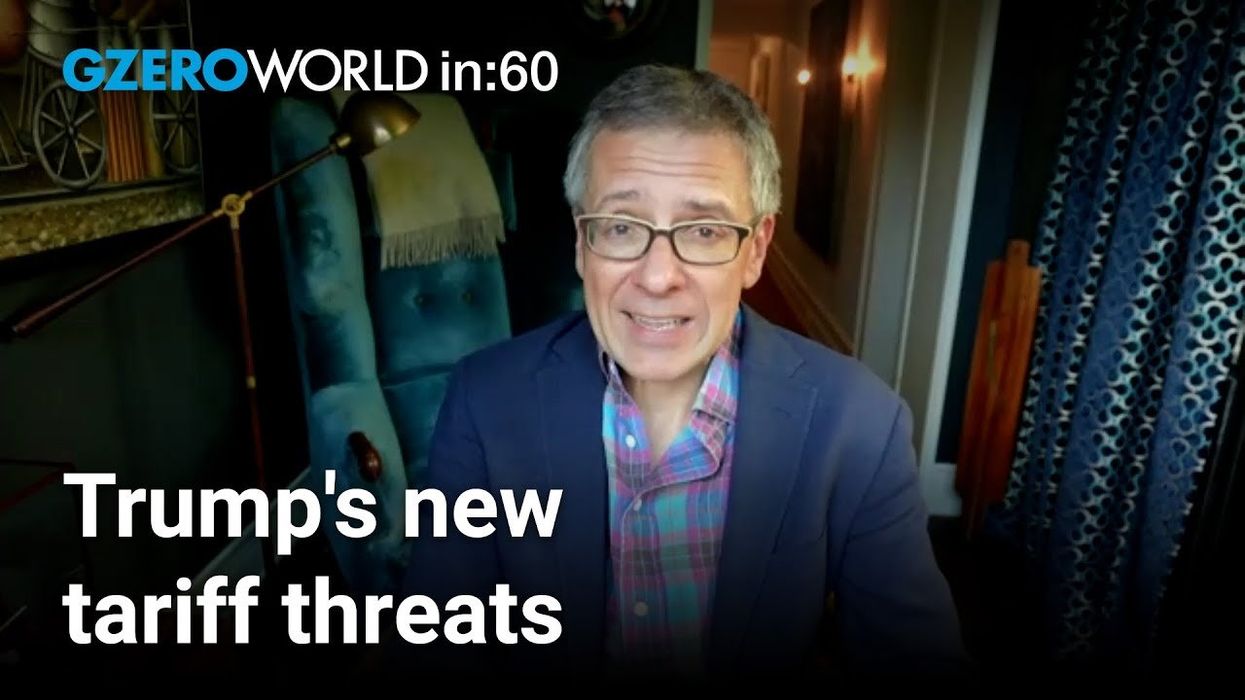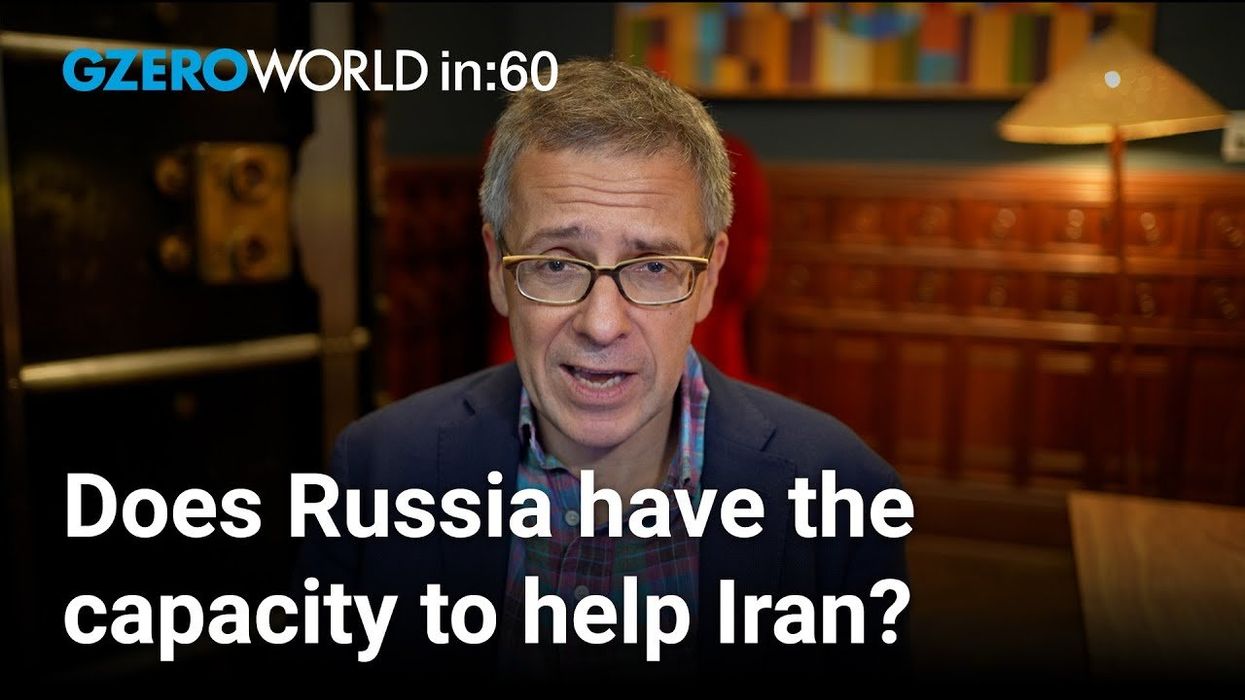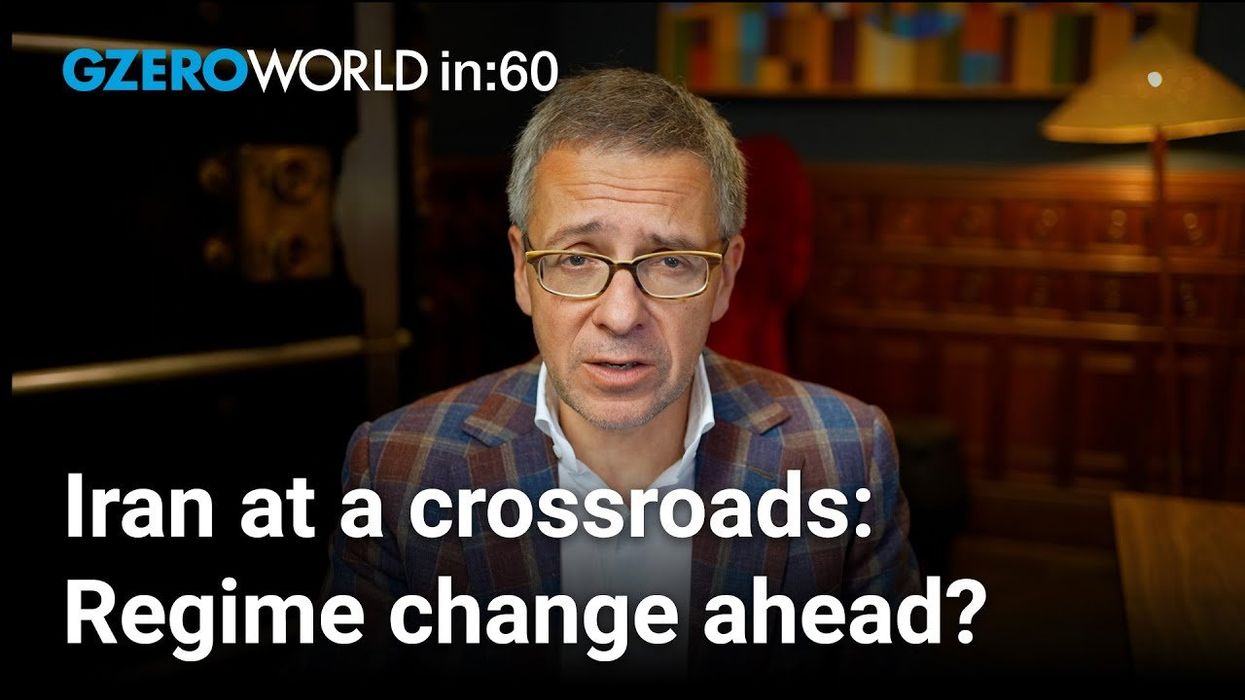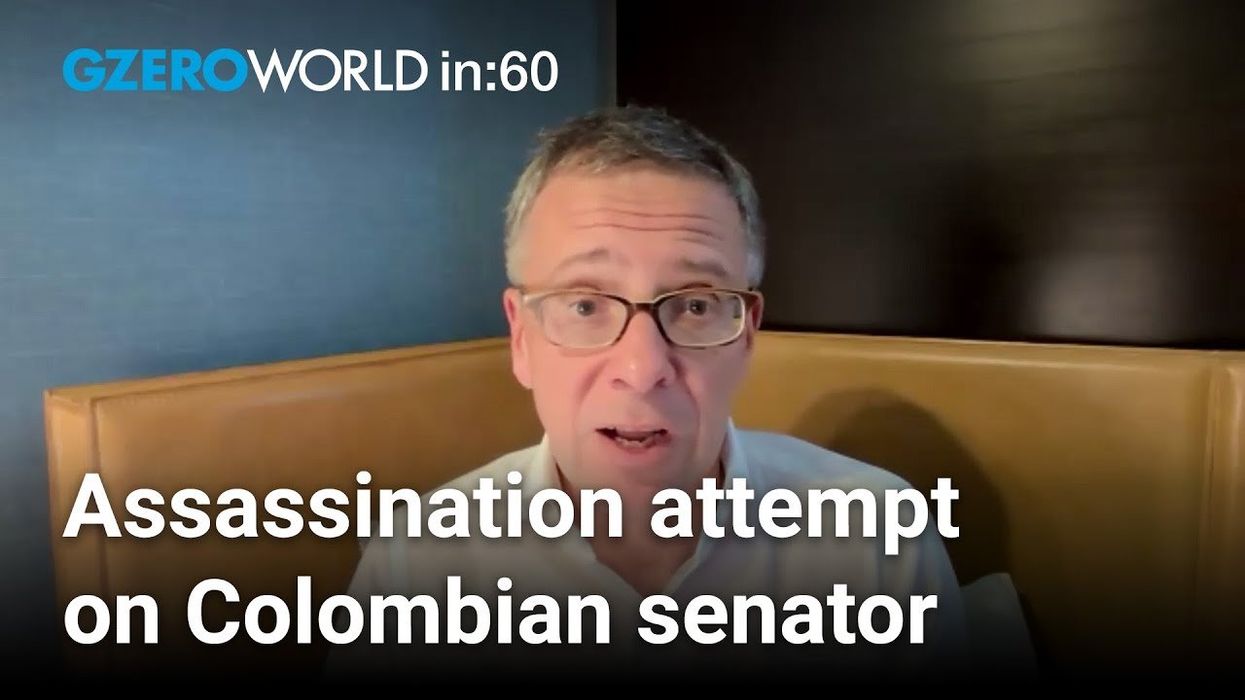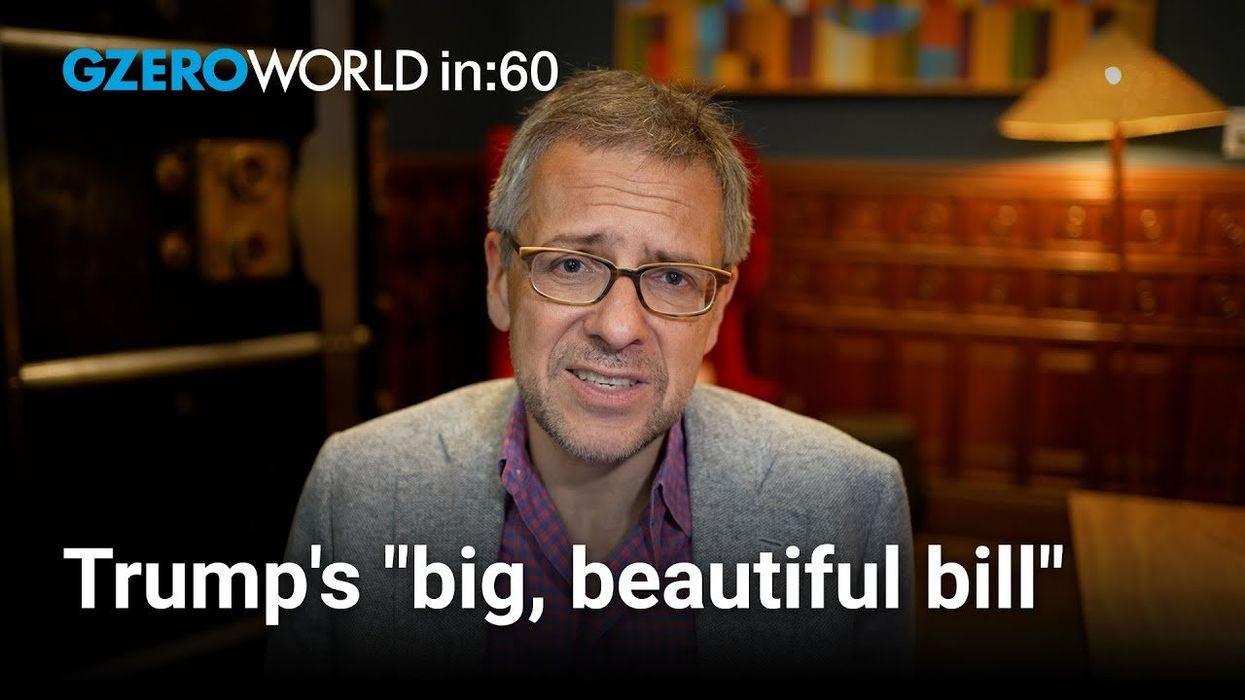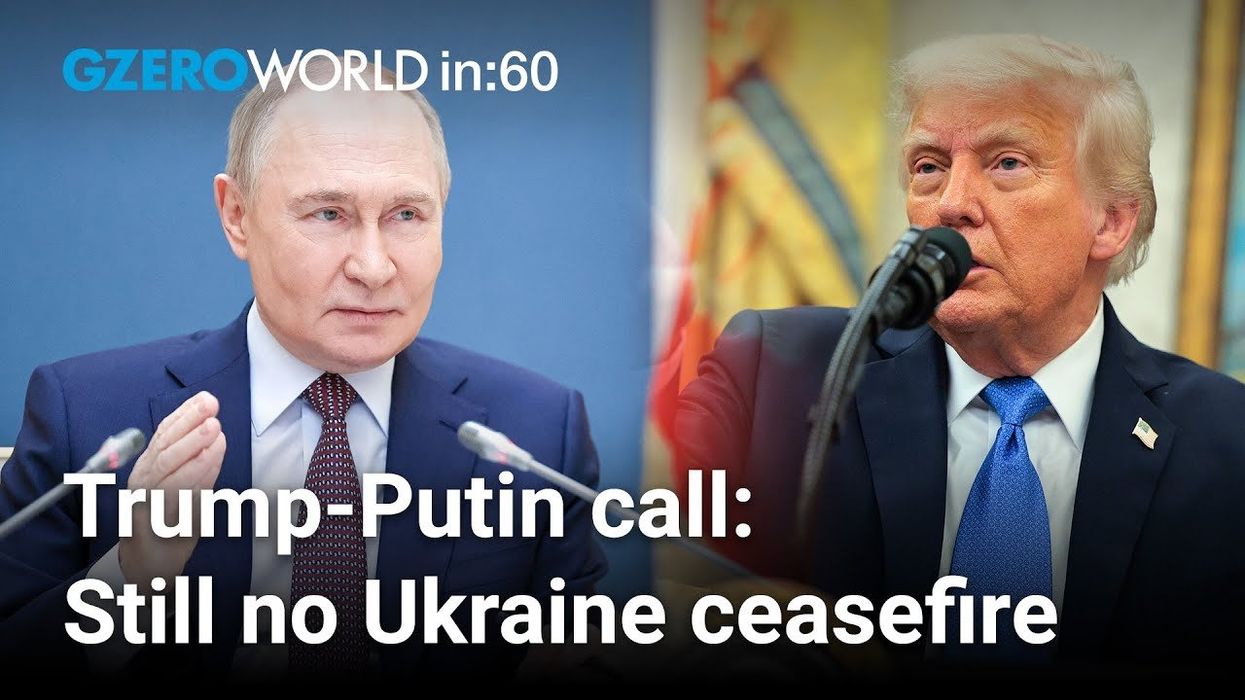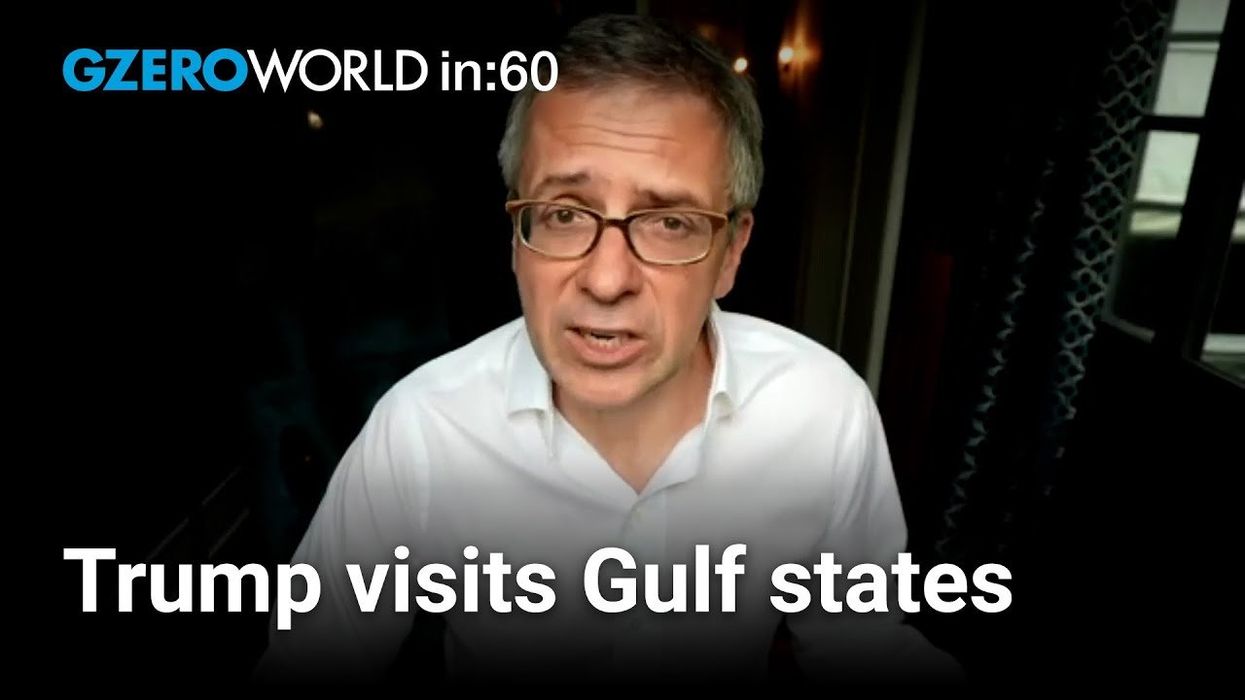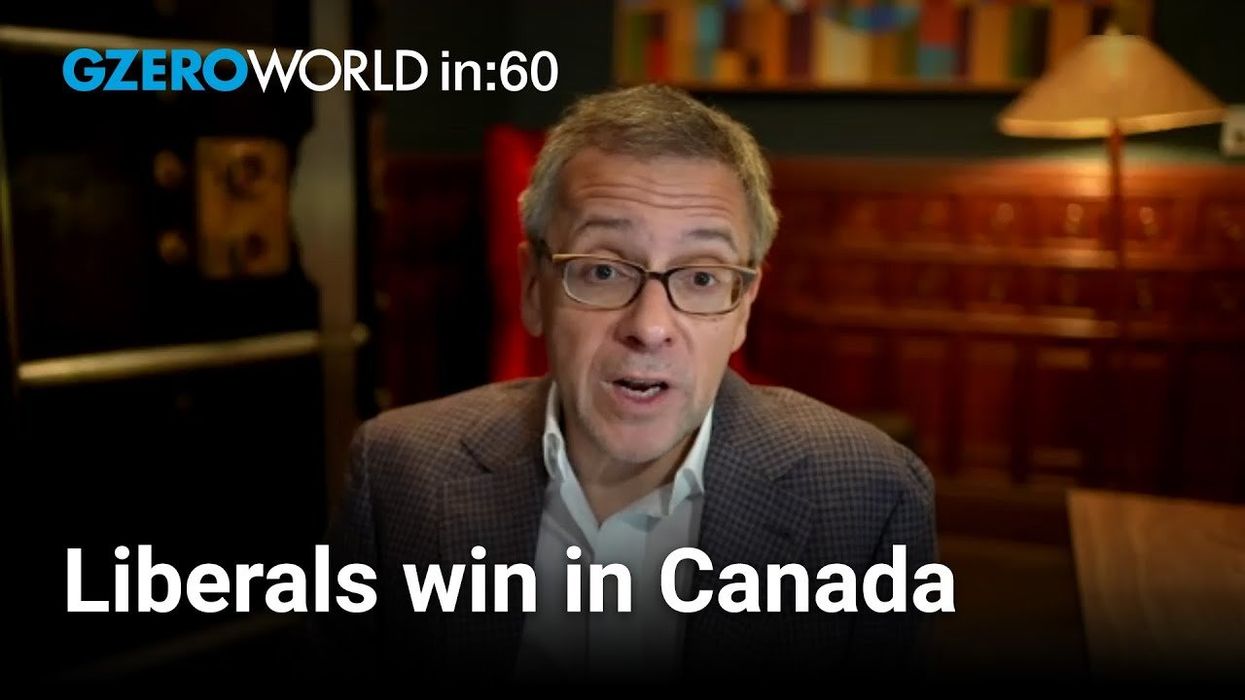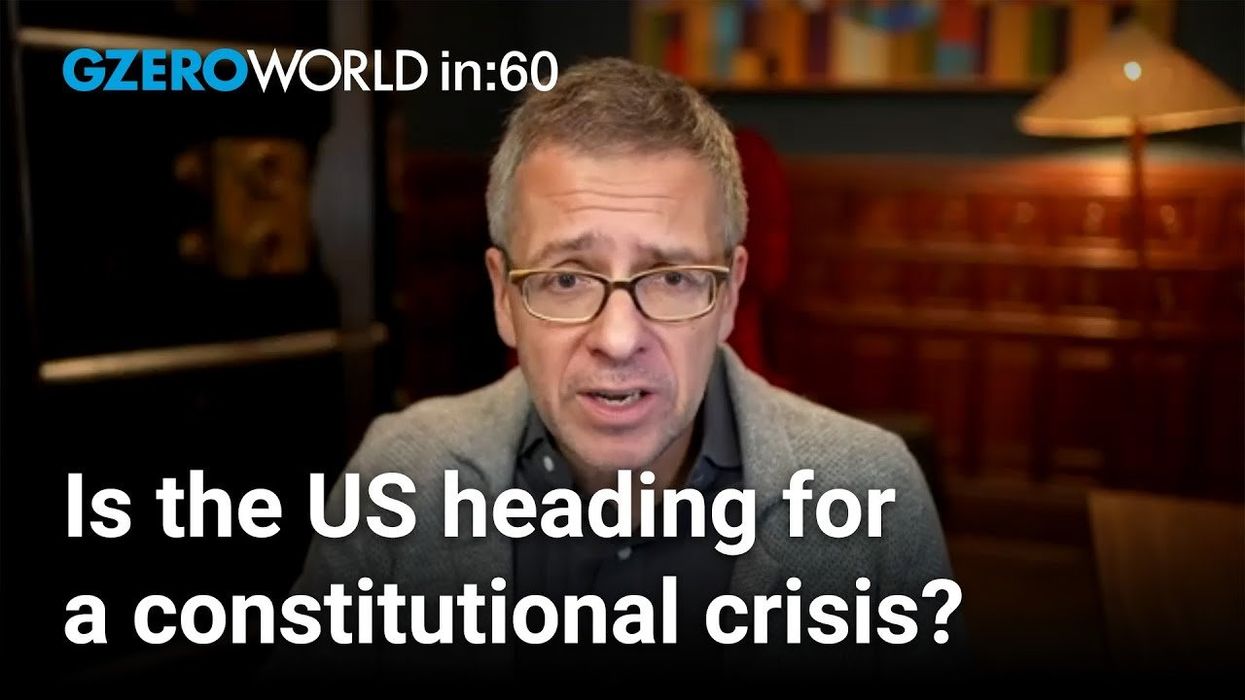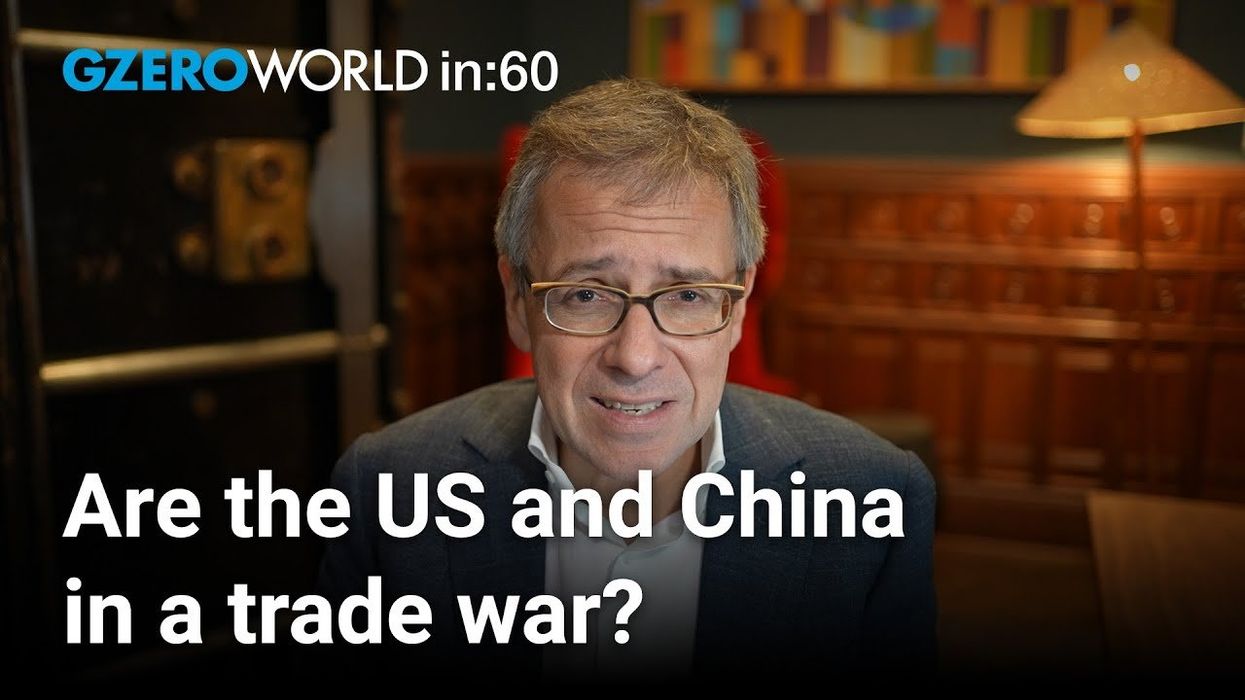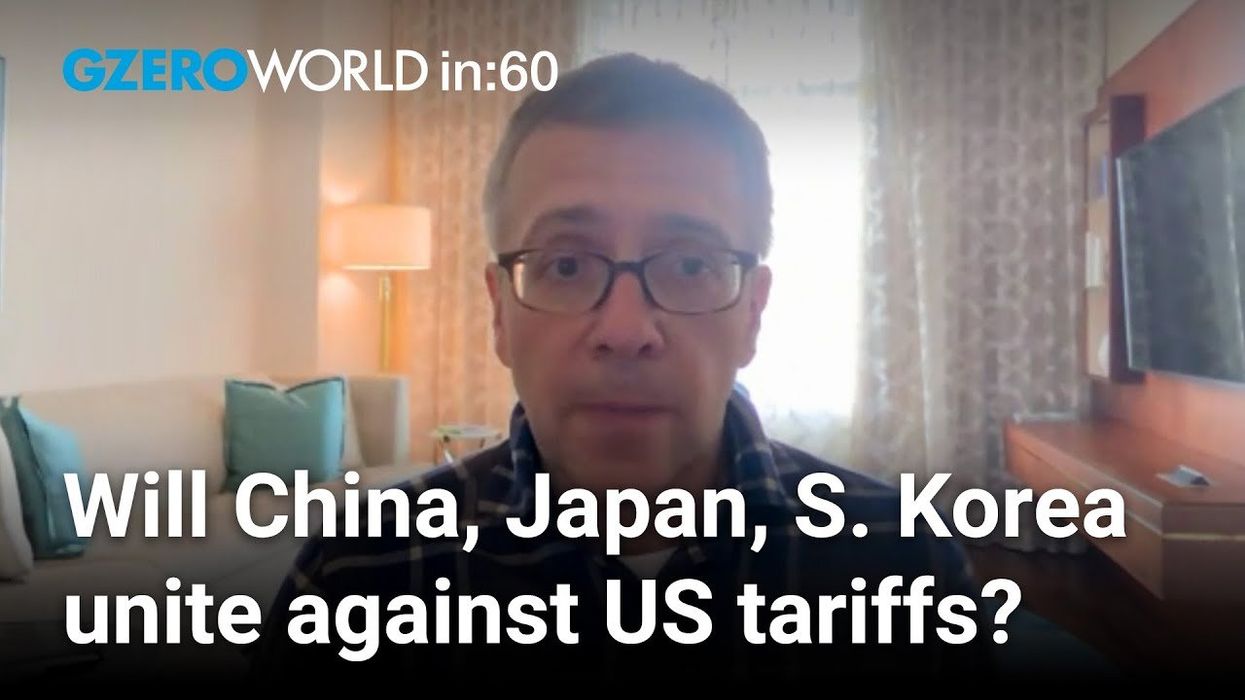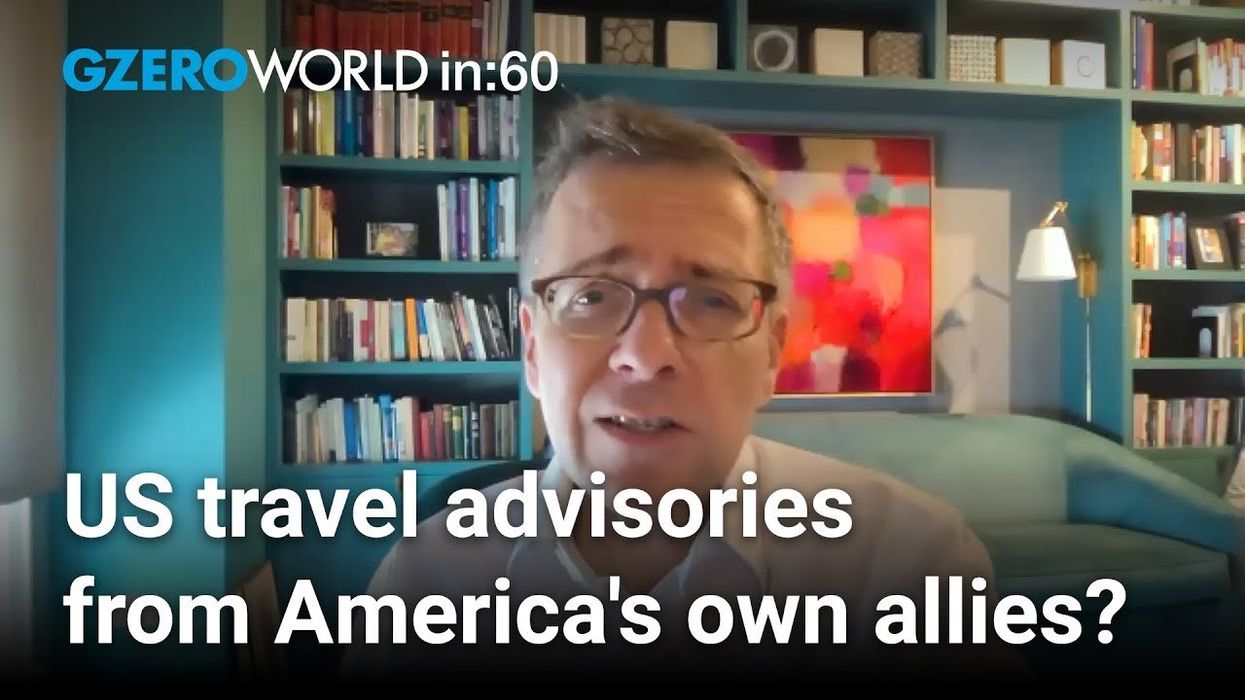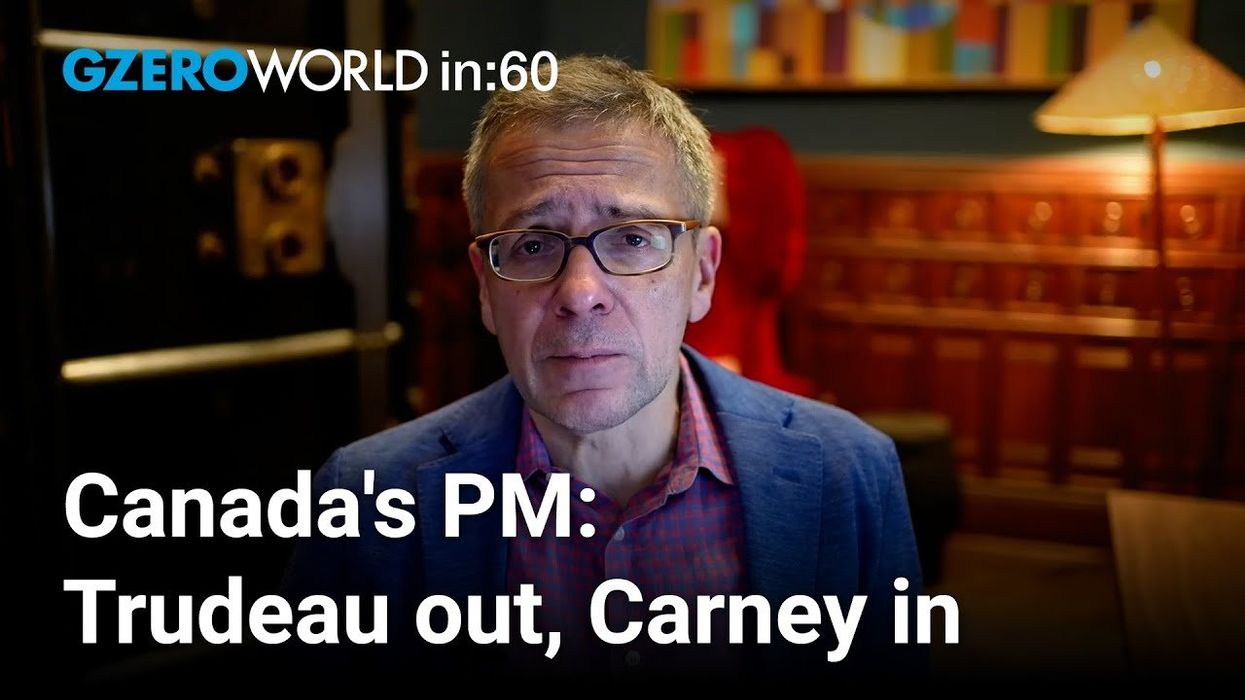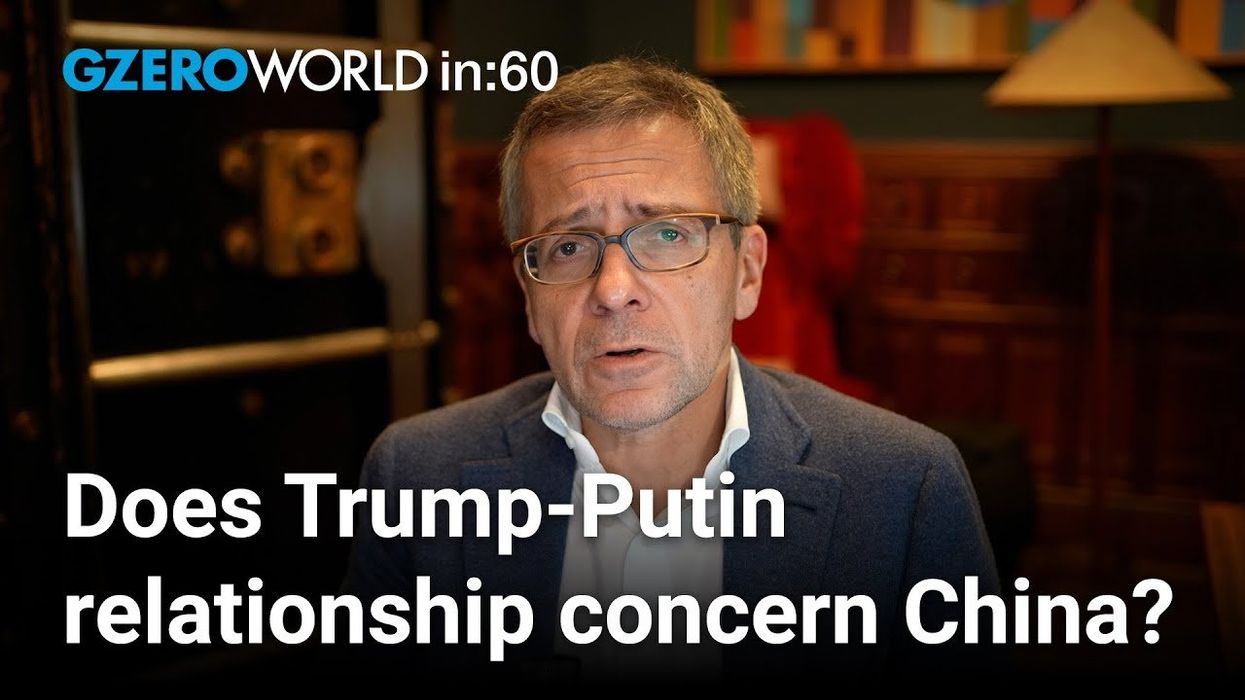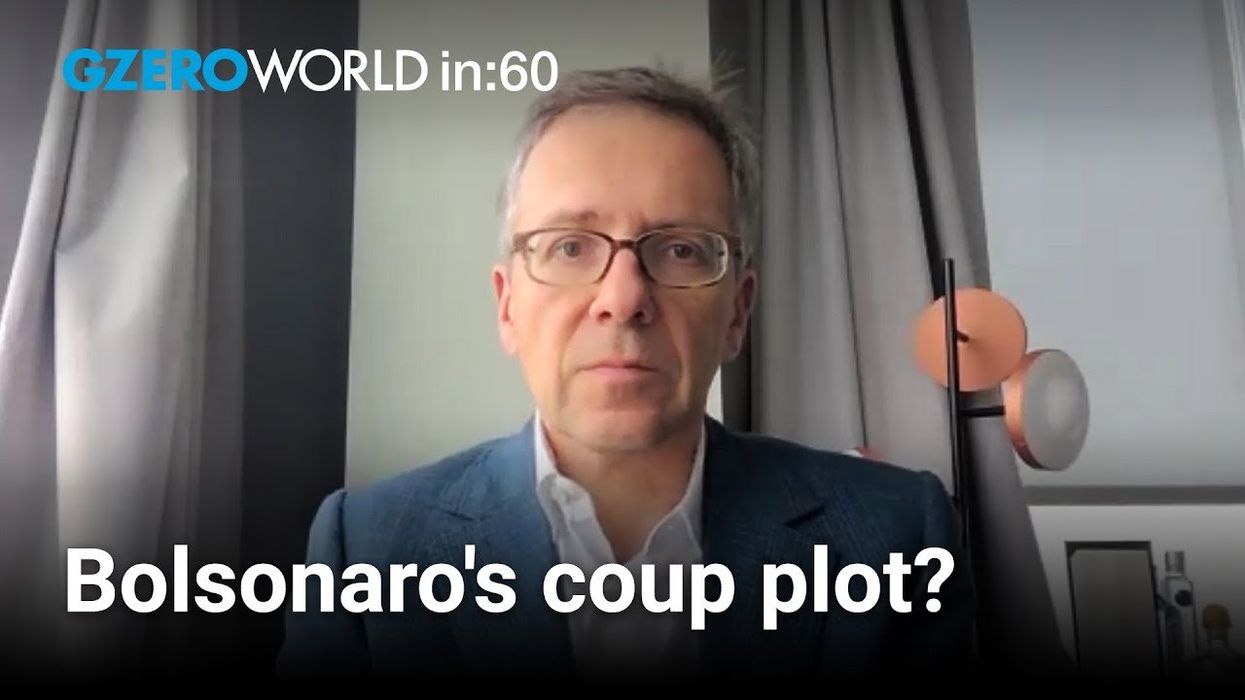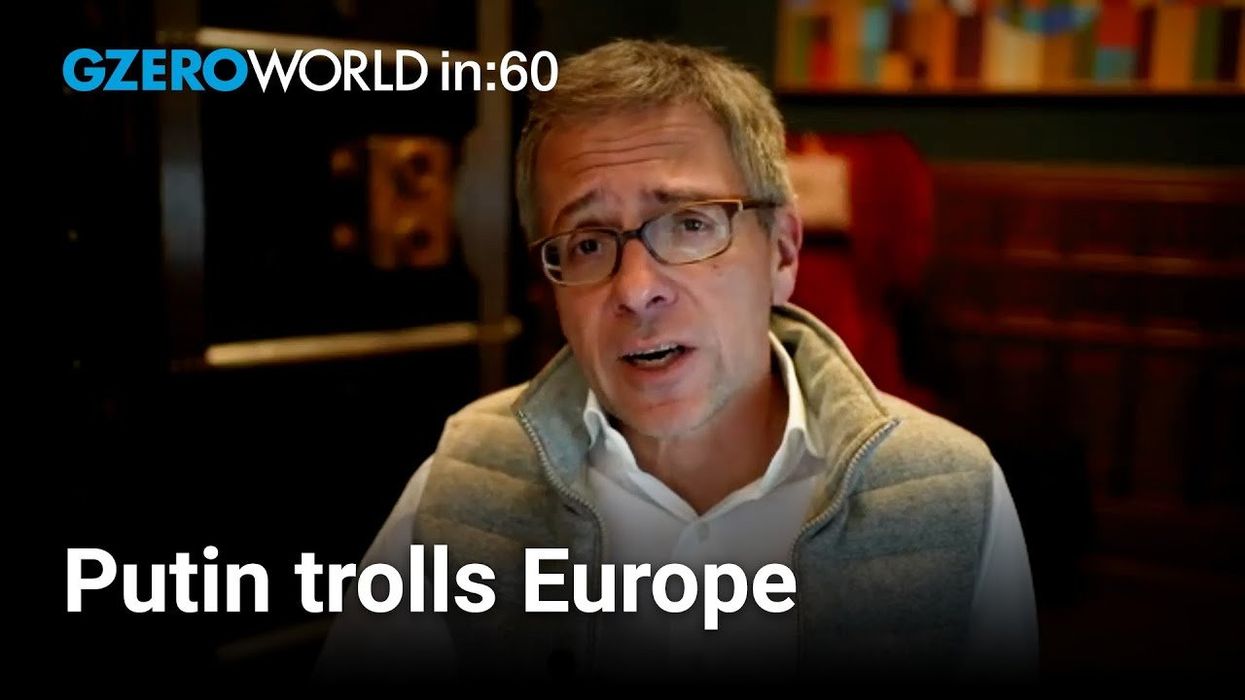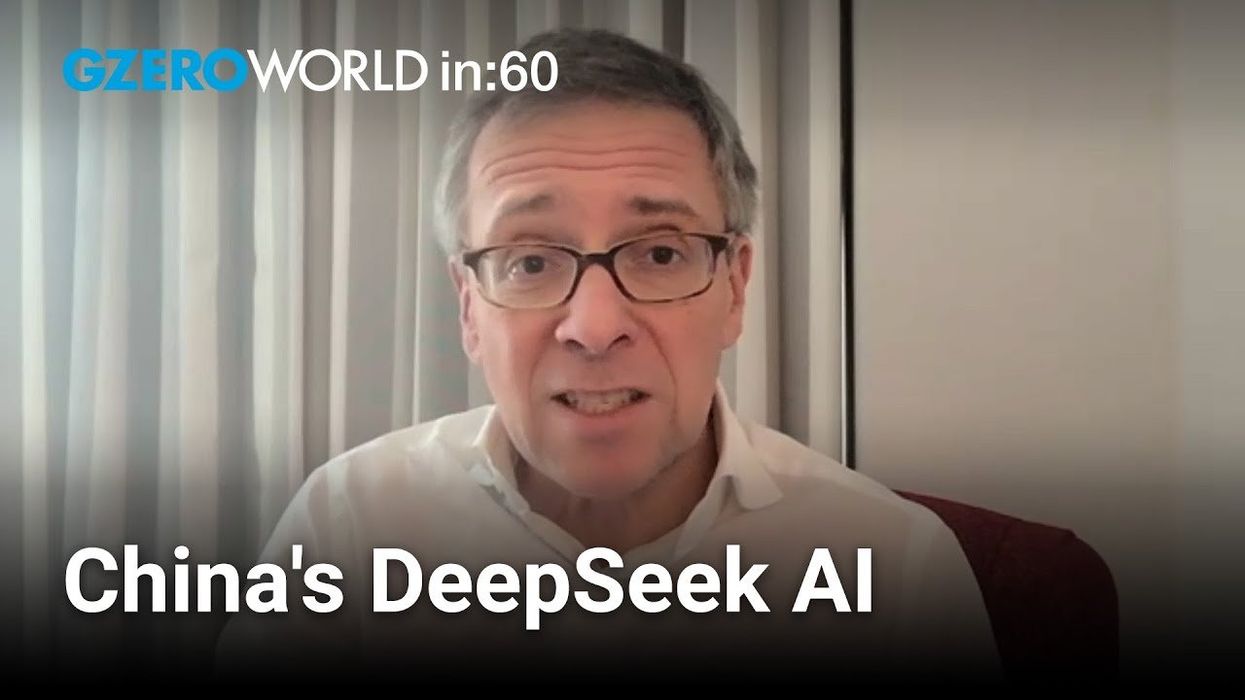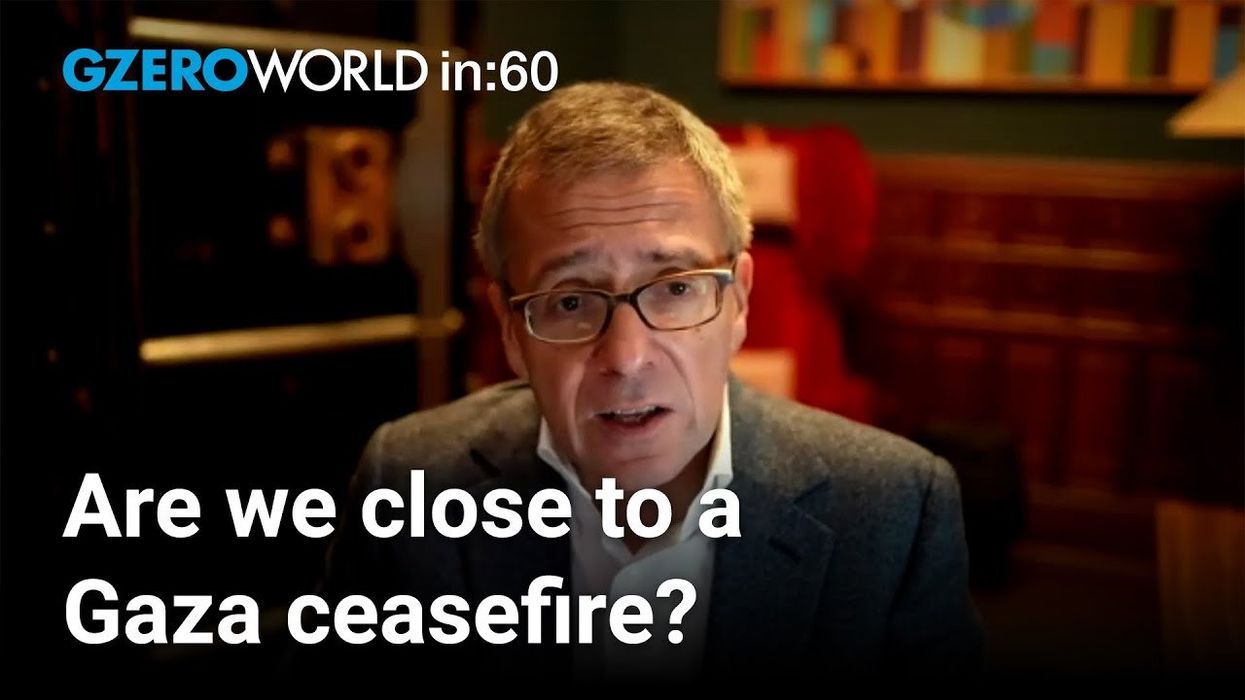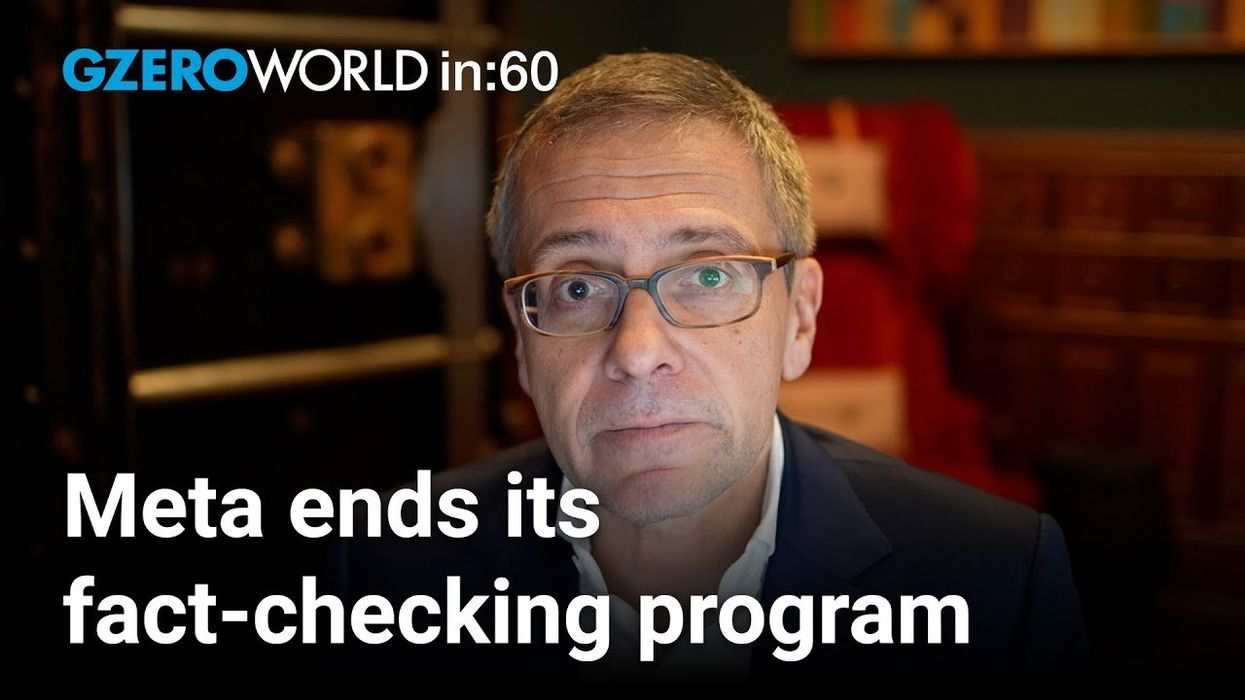VIDEOSGZERO World with Ian BremmerQuick TakePUPPET REGIMEIan ExplainsGZERO ReportsAsk IanGlobal Stage
Site Navigation
Search
Human content,
AI powered search.
Latest Stories
Sign up for GZERO Daily.
Get our latest updates and insights delivered to your inbox.
Global Stage: Live from Davos
WATCH
On the latest edition of World In 60 Seconds, Ian Bremmer brings an extra-long analysis to pressing issues:
Pandemic, economic depression and now mass protests. What's next for America?
I'm not surprised by this level of dissent publicly, given how long social inequality has persisted and how much worse it's being made by coronavirus. You're going to see a lot of people on the streets because we've got 25% unemployment right now. A lot of people are going to go back to work, but a lot aren't. It's heading towards the summer, people are soon coming out of lockdown and may feel safer in terms of the pandemic, especially in NY and in LA where the caseload has gone down. We also have very deep divisions.
Trump was at 42% approval when we had lowest unemployment. He's at 42% approval now when we have global depression. This says a lot about how divided the country is. This has been on the back of the African-American community. Blacks have been hardest hit in the United States in terms of inequality and now in terms of coronavirus too. How many are dying, how many can't socially distance, how many have jobs that have gone away or require work in unhealthy situations? The Blue Lives Matter contingent, the working class white folk, also feel disenfranchised, their wages are flat and they don't feel secure. This is a massively polarized group and there is less space in their center than before.
With election coming right now in the US, you're probably going to see violent protests for longer. Keep in mind that the media focuses on the violence and riots. If you watched last night, the peaceful protests didn't make news. Instead, it's who broke windows, hit police, got arrested. It's the minority of people out there, but it's what the news and social media cover. With all of this and with a president who understands that the way he wins is not by reaching out to black Americans, but by ensuring that his base shows up in larger numbers, implies much greater division at a time of great economic disarray and dislocation. The next few months are going to be really ugly in the US.
With inequality protests going global, where does that leave coronavirus and social distancing?
I'd say be less oriented towards panic around this. The super spreader incidents we've seen in a nightclub in South Korea, a bunch of churches, and a chorus group in Seattle, all have a commonality: people are singing. In Wisconsin, they found one outdoor demonstration that led to fifteen people being found positive. That's a lot less than the 50% outside of Seattle, Washington, who were socially distanced, but inside a room singing for three hours. Here in NYC, I saw a large-scale demonstration, about 70% to 80% were wearing masks. There was a decent amount of social distancing, nothing like what we saw at the Ozarks. Most people that are demonstrating about Black Lives Matter and police brutality don't have a thing about wearing mask. Most people that were demonstrating the lockdowns, there is a political statement in not wearing a mask. My hope, based on some science, is that relatively short-term protests outdoors with many people wearing masks, probably won't get you the super spreader incidents that we have seen.
Having said that, the protests grow, and you get a lot of people protesting in close quarters and going up against the police. The police weren't any better at wearing masks last night than the protesters were in terms of numbers. You'd be more concerned about that.
Hong Kong banned the Tiananmen Square vigil for the first time, coming up on June 4th. What does that say for its autonomy?
They're saying they banned it because of concerns of coronavirus in Hong Kong, one of the most effective paces in the world at containing the virus. Doesn't seem to be the priority for the legislature. They've been trying to work on making it illegal for people to speak badly of the Chinese mainland. I think it's a bit of misdirection. It's about wanting to assert more authority over Hong Kong. It probably says that Macao and Hong Kong are not, not going to be allowed to protest Tiananmen Square going forward. Let's see what happens with Macao going forward. The United States has put the Chinese and Hong Kong on notice, but the level of sanction is less than it could be and not close to removing special trade status.
Keep reading...Show less
More from ask ian
Trump–Zelensky meeting at Mar-a-Lago
December 29, 2025
Is the US heading toward military strikes in Venezuela?
December 22, 2025
Trump, loyalty, and the limits of accountability
December 16, 2025
Notre Dame, politics, and playing by their own rules
December 08, 2025
Trump threatens regime change in Venezuela
December 02, 2025
Is Trump’s trade strategy backfiring abroad?
November 25, 2025
Ian stands in line for a bagel, the internet melts down
November 21, 2025
Could Trump have handled the Epstein issue any worse?
November 17, 2025
Democrats divided over government shutdown deal
November 11, 2025
Zohran Mamdani and America's political future
November 04, 2025
Trump, Xi, and the new US–China standoff
October 14, 2025
US-China AI race: Dueling strategies and potential risks
October 07, 2025
Trump shifts on Russia: From carrots to sticks in Ukraine war
September 30, 2025
Trump’s UN speech: Sovereignty, security, and ending wars
September 23, 2025
Israel attacks and targets Hamas leadership in Qatar
September 10, 2025
US strike on vessel from Venezuela
September 03, 2025
Trump pulls US out of UNESCO, again
July 22, 2025
Trump announces new plan to arm Ukraine
July 15, 2025
Are NATO allies aligned on Iran?
June 24, 2025
Will Iran’s regime survive?
June 18, 2025
Trump-Musk rift over Trump's "big, beautiful bill"
June 04, 2025
What is Trump after in his latest Gulf states tour?
May 13, 2025
Why Mark Carney’s victory won’t heal the US-Canada rift
April 29, 2025
Trump tariff is starting a US-China trade war
April 08, 2025
What if Japan & South Korea sided with China on US tariffs?
April 01, 2025
US travel warnings issued by its closest allies
March 25, 2025
US-Canada trade war helps Mark Carney's election prospects
March 11, 2025
Why Trump won’t break the Putin-Xi alliance
March 04, 2025
Will Trump & Musk punish Brazil over Bolsonaro indictment?
February 19, 2025
Putin trolls Europe about "the master" Trump
February 04, 2025
DeepSeek puts US-China relations on edge
January 30, 2025
Gaza ceasefire likely as Biden and Trump both push
January 14, 2025
Meta scraps fact-checking program: What next?
January 07, 2025
GZERO Series
GZERO Daily: our free newsletter about global politics
Keep up with what’s going on around the world - and why it matters.

